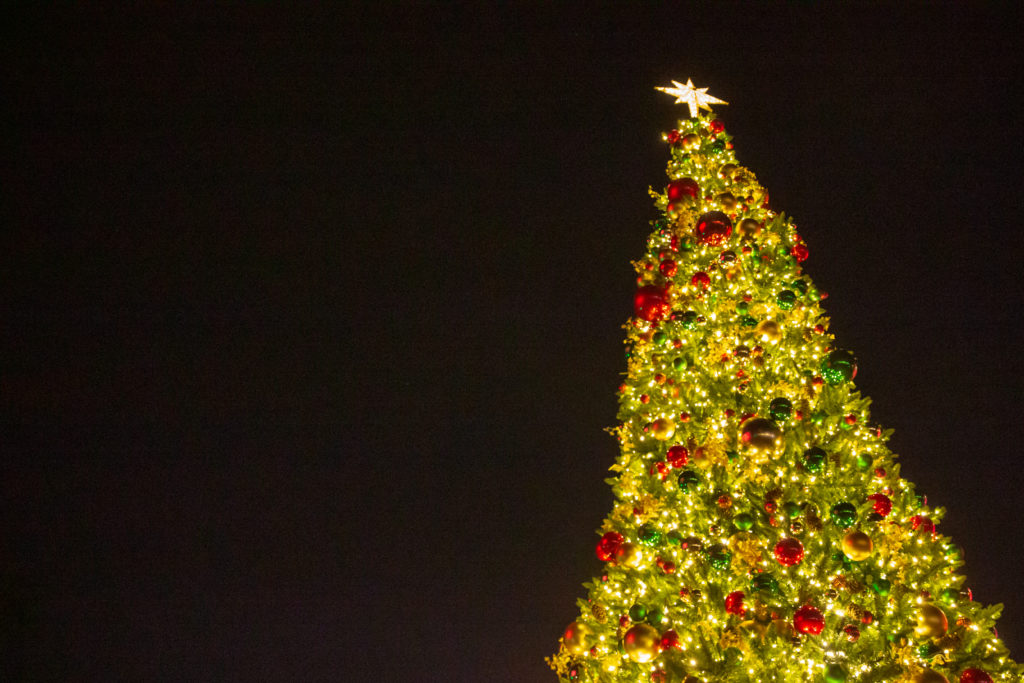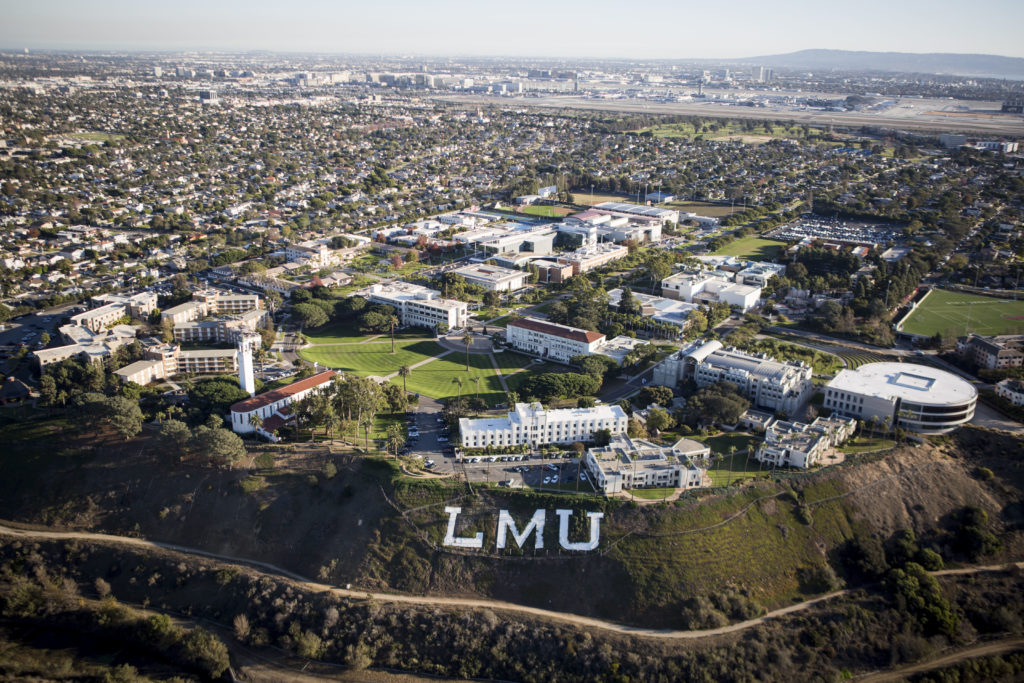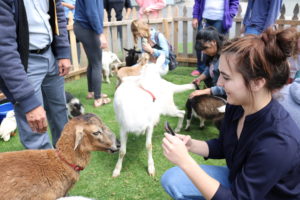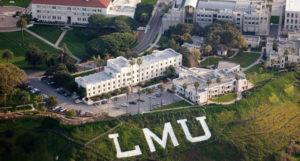Cabinet Corner is a periodic feature of LMU This Week where the university’s executive leaders share their perspectives with the community. The President’s Cabinet will provide updates on initiatives, policies, events, challenges, and areas of interest.
John Sebastian, vice president for mission and ministry, writes:
It is no coincidence that so many of the world’s great religious traditions turn to images of light in response to the lengthening nights and deepening cold that define this time of year for so many. Behind the twinkle lights adorning our homes and luring us into shopping malls stocked with the hottest holiday gifts lie repeated reminders to believers of all stripes that light will again penetrate the darkness and that the steadfastness of the faithful in the face of encroaching gloom will be rewarded.
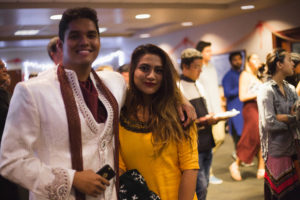
Indeed, festivals of light abound at this time of year. Diwali welcomes the arrival of autumn’s longer nights with a joyful celebration of light’s triumph over darkness and a recommitment to good works. Traditional Hindu celebrations of Diwali are punctuated by the pop of firecrackers and illumined by the lamps used to decorate homes. For its part, Hanukkah commemorates the rededication of the Temple in Jerusalem in the second century B.C.E. following the victory of the Maccabees against superior forces. Jewish families light the candles of a menorah in recollection of the miracle that occurred when the temple was reclaimed and a single day’s supply of oil sufficed to keep the menorah lit for eight days.
Christmas likewise makes use of light to mark the arrival of God in the world. The celebration of the nativity of Jesus on Dec. 25 falls when the darkness in the northern hemisphere is at its deepest, a fact that early Christians exploited to full advantage, as evidenced by the liturgy for evening prayer on Dec. 21, the winter solstice, which since at least the eighth century has included the antiphon (a shorted phrase preceding a longer prayer) O Oriens:
O Oriens,
splendor lucis aeternae, et sol justitiae:
veni, et illumina sedentes in tenebris,
et umbra mortis.
O Radiant Dawn,
splendor of eternal light, sun of justice:
come and shine on those who dwell in darkness and in the
shadow of death.
The centrality of actual lights and light imagery in the celebrations of Hindus, Jews, and Christians, among other religious observers during the months between the autumnal equinox and the winter solstice, is a powerful reminder that, for all our differences, those who look for meaning beyond the immediate realities of their lives find that significance in many of the same places. The lights that shine all the brighter against the seeming impenetrability of winter nights symbolize the hope to which we all cling as the darkness closes in around us.
The commonalities of religious experience that cross boundaries of creed and culture are a potent reminder that at LMU, where the service of faith and the promotion of justice are the bedrock of our Catholic identity, we can arrive a more profound appreciation of our own founding traditions when we consider them alongside other belief systems. For that reason when the LMU community undertook last year its Mission Priority Examen at the behest of the Association of Jesuit Colleges and Universities and the Society of Jesus, one of the recommendations identified for advancing mission in the coming years was, in the language of our self-study report, to “develop a cross-divisional strategic plan for promoting the service of faith for all students by enhancing interfaith programming.”
In his review of this report, Rev. Scott Santarosa, S.J., provincial of Jesuits West, flagged this particular goal for further comment, observing: “In our cultural struggle to engage questions of faith, should not our reflection on the call to the service of faith at LMU include more than interfaith dialogue? I believe that given the diversity of faith traditions at LMU, you can use this opportunity for learning about your various faith traditions and provide the opportunity and encouragement for every person on campus to deepen their faith.”
This call for renewed attention to interfaith dialogue and activity at LMU also proved timely, given its consonance with the aims of the International Association of Jesuit Universities, convened for the first time last summer and which includes among its priorities the promotion of “interfaith dialogue and collaboration on our campuses” in order to “address the challenge of secularism and materialism that negates the importance of faith for full human and social development.”
In response to our examen, therefore, President Snyder has appointed an Interfaith Task Force charged with exploring how to deepen our institutional commitment to the exploration of faith in ways consistent with our identity as a Catholic university in the Jesuit, Marymount, and C.S.J. traditions and that also honors the spiritual commitments of all members of our community. Specifically, this task force will:
- investigate best practices around interfaith dialogue, collaboration, and programming on university campuses by researching other institutions and engaging appropriate consultants;
- engage a wide range of LMU stakeholders in identifying potential opportunities for and obstacles to implementing a robust program of faith formation and spiritual dialogue at LMU; and
- recommend to the university several concrete action steps and a timeline for implementation.
This committee will be co-chaired by Jade Smith, associate dean of student affairs, and me. It is our expectation that as the task force identifies key focus areas, we will form subcommittees to develop initiatives, and it is our expectation and hope that these subcommittees will draw on expertise of members of our LMU community beyond those on the task force. For that reason, if you have a particular interest in any aspect of inter- or multifaith dialogue and collaboration, you are strongly encouraged to let Jade or me know.
May this holiday season be one filled with joy and peace for you and your loved ones, and may the light that shines on all of us guide us to greater appreciation for our differences while strengthening our sense of belonging to one LMU community founded on faith.
